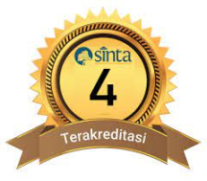Edupark Textbook on Physics of Hot Water Semurup in Kerinci Jambi, Indonesia in terms of the depth of the material and the application of the scientific approach according to the 2013 curriculum for SMA / MA
Abstract
Full Text:
PDFReferences
Machin, A. (2014). Implementation of the scientific approach, character planting and conservation in learning growth materials. Journal of Indonesian Science Education, 3 (1).
Anggara, V. J., & Rifai, H. (2019, April). The preliminary analysis of Edupark learning devices of temperature and heat physics of Air Panas Semurup Kerinci District. In Journal of Physics: Conference Series (Vol. 1185, No.1, p. 012095). IOP Publishing.
Sari, D. P., & Rifai, H. (2019, April). Preliminary analysis of edupark fluid learning tool in Mifan water park in Padang Panjang city. In Journal of Physics: Conference Series (Vol. 1185, No.1, p. 012091). IOP Publishing.
Emafri, W., & Rifai, H. (2019, April). Ngarai Sianok as Physics Education's Edupark. In Journal of Physics: Conference Series (Vol. 1185, No.1, p. 012123). IOP Publishing.
Gusweri, S., & Rifai, H. (2019, April). Preliminary analysis based on instructional materials education, learning natural sciences method of travel work in Janjang Seribu and Merah Putih Mountain, Difficult for Water. In Journal of Physics: Conference Series (Vol. 1185, No.1, p. 012094). IOP Publishing.
Rifai, H., & Ahmad, F. and Amir Yulkifli (2014), Integrating Energy Saving Characters into High School Physics Materials Using the Concept of Fitting Technique. In Proceding for the 2014 National Seminar and Annual Meeting of Mathematics and Natural Sciences (pp. 269-276).
Ramadhani, P. R., Akmam, A., Desnita, D., & Darvina, Y. (2019). Analysis of science process skills in high school physics textbook class XI semester 1. Pillar of Physics Education, 12 (4).
Sukardi, T. (2014). Looking for a new format of multicultural based education in Indonesia. SOSIO-DIDAKTIKA: Social Science Education Journal, 1 (1), 99-110.
Margono, S. (2010). Educational research methodology. Jakarta: PT Asdi Mahasatya.
A., Morissan M., et al. (2012). Survey Research Methods. Jakarta: Golden.
Sukmadinata, N. S. (2015). Curriculum Development: Theory and Practice. Bandung: PT. Rosdakarya youth.
Aswar, S. (2012). Compilation of Psychology Scale Edition 2. Yogyakarta: Student Library.
Trianto. (2015). Designed an innovative, progressive, and contextual. Surabaya: Prenadamedia.
Pharisee, M. I. (2012). Textbook as a Psychological Tool for Enculturation Process and Preservation of Local Wisdom. Proceedings of the National Scientific Meeting of Teachers IV. Tangerang: Open University.
Azhar. (2010). Learning Media. Jakarta: PT Raja Grafindo Persada.
DOI: http://dx.doi.org/10.24036/10717171074








